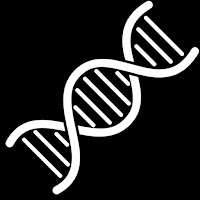When our thyroid makes either too much or too little
of some important hormones, It imbalances the vital functions of our body. This
imbalance is called a thyroid disease.
There are several different types of thyroid diseases including hyperthyroidism, hypothyroidism, thyroiditis and Hashimoto thyroiditis. Before explaining about thyroid diseases, let us discuss about thyroid gland.
What is a Thyroid Gland?
The thyroid gland is a small organ that located in the front of the neck, wrapped around the trachea.
It shaped like a butterfly, smaller in the middle with two wind wings that extend around the side of your throat .We have many other glands throughout our body that creates and releases hormones and thyroid is one of those glands. These hormones are important for many vital functions of our body. Thyroid gland is brownish-red in color, the thyroid is rich in blood vessels. It has two lobes connected by a bridge (isthmus) in the middle.
The thyroid secretes several hormones, collectively called
thyroid hormones. The main hormone is thyroxine also called T4. These hormones
influence our metabolism, growth and development, body temperature.
What are types of thyroid disease?
There are many types of thyroid gland diseases. These
are listed as below….
·
Hyperthyroidism
Hyperthyroidism also known as Overactive thyroid occurs
when gland produces too much of the hormone thyroxine. It can accelerate the
body’s metabolism causing weight loss and irregular heartbeat.
Symptoms for hyperthyroidism
- Unintentional weight loss
- Irregular heartbeat
- Pounding of Heart
- Increased appetite
- Nervousness
- Sweating
- Change in menstrual cycle
- Increased sensitivity to heat
- Fatigue Difficulty in sleeping
· Hypothyroidism
Hypothyroidism also known as underactive thyroid is a condition
in which your thyroid gland doesn’t produce enough of certain crucial hormones.
Hypothyroidism may not cause noticeable symptoms in the
early stages. Over time, untreated hypothyroidism may cause a number of health
issues such as obesity, joint pain, infertility, and heart diseases.
Symptoms for hypothyroidism
- Fatigue
- Increased sensitivity to cold
- Constipation
- Dry skin
- Weight Gain
- Puffy face
- Muscle weakness
- Increased blood cholesterol level
- Thinning of hair
- Slowed heart rate
- Depression
- Impaired memory
- Enlarged thyroid gland
Thyroid nodules
These are solid or fluid filled lumps
that form within thyroid gland. Most thyroids are not serious and do not cause
any symptoms. Only a small percentage of thyroid nodules are cancerous.
Occasionally some nodules become so large that they can be
- Be felt
- Be seen, often as a swelling at the base of your neck
- Press on your windpipe, causing shortness of breath.
In some cases the nodules can be a cause of over release of thyroxine hormone that can show symptoms similar to hyperthyroidism.
· Goiter
Abnormal enlargement of thyroid gland
is known as the goiter. Although goiter is painless but a large goiter can
cause a cough and make it difficult for you to swallow or breath.
Symptoms for goiter
- A swelling at the base of your neck
- Tight feeling in throat
- Coughing
- Difficulty in breathing
- Difficulty in swallowing
There are also some other disease of thyroid gland including thyroiditis(inflammation of gland), Thyroid cancer(Over growth of cells of thyroid gland).




